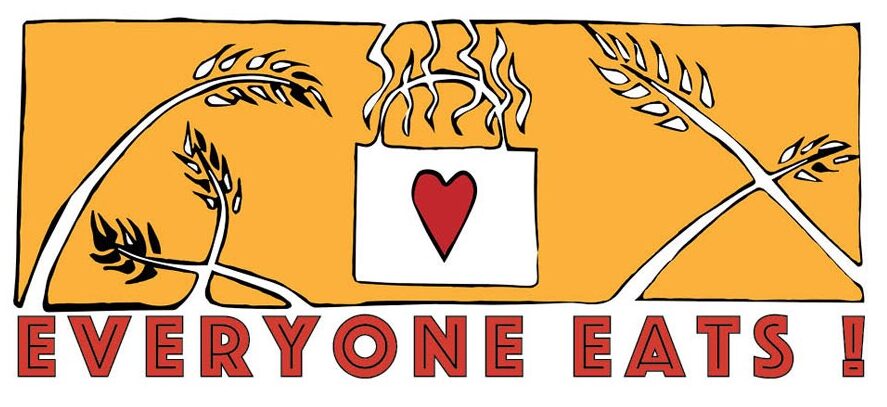
September 8, 2020; Daily Yonder
Food insecurity, always a challenge in the US, has grown in scale as a result of the coronavirus pandemic and the resulting economic crisis. The tools for dealing with this have come in the form of greater reliance on existing food programs (food banks, federal programs such as the Supplemental Nutritional Assistance Program or “SNAP”), and many nonprofits retrofitting their existing feeding programs to take on expanded needs. NPQ has addressed this issue both from the retrofitting side and from the vantage of the government’s slow movement to act. Now, heads are turning to Vermont, where an innovative program seems to be taking a new tack and finding success on multiple levels.
Initially based in Brattleboro in southern Vermont, Everyone Eats! is using federal CARES Act funds (distributed through a grant) to pay local restaurants $10 a meal, with the stipulation that 10 percent of the food must be sourced from local farms. The Brattleboro site is providing about 650 free meals a day to area residents, and the model is expanding to other communities in Vermont. Other states are looking at it as something they might replicate.
What’s different about this feeding program? Well, with a 46-percent increase in food insecurity across Vermont attributed to the pandemic, something had to be done quickly to address the crisis. According to Carolyn Sweet, director of planning and development for South East Vermont Community Action, the idea of tapping into small restaurants came from several independent programs in small (often rural) communities. Now, many of those small programs are applying to be Everyone Eats! hubs and tap into the $5 million in CARES funding.
“It’s that level of regional innovation at the local, regional level that allowed us really to take a look at all those models in Vermont and create a program that made space for whatever sort of a program a community might emerge,” Sweet says.
Sign up for our free newsletters
Subscribe to NPQ's newsletters to have our top stories delivered directly to your inbox.
By signing up, you agree to our privacy policy and terms of use, and to receive messages from NPQ and our partners.
Everyone Eats! also addresses some of the underlying issues that often keep hungry people from tapping into food resources. Many served by the program come from rural areas of the state, where challenges such as transportation and food deserts make taking advantage of “normal” federal food benefits difficult. Add to that an inordinate sense of pride and the stigma that goes with taking government “handouts,” and you have hungry people with limited options.
Anore Horton, executive director of Hunger Free Vermont, says, “I think what the Brattleboro Everyone Eats! program, in its success, is showing us is that this is a kind of model that people really feel good about using for food access. Because they feel that while yes, meals at no charge are helping them and their family, they’re helping the restaurants at the same time. They’re helping their community.”
The reviews from participating restaurants are positive as well. Some have been able to hire back staff to help with support for this program, and others talk about how it has drawn them closer to the community. One restaurant owner points to Everyone Eats! as the one thing he is able to count on this year.
One other aspect of Everyone Eats! is the connections it can make to other nonprofit resources for the people it serves. While those who come for meals do not have to provide any proof of income, they are asked to fill out an optional demographic form. Local nonprofits can pick up meals in bulk that they can deliver to their clients. They are also working with food relief programs to help participants connect with programs like SNAP and WIC, an affiliated food-stamp program that supports women, infants and children. Since launching in early August 2020, Everyone Eats! has distributed nearly 12,000 meals to residents of Brattleboro and the surrounding rural communities, helping sustain people, restaurants, farms and communities.
The future for this program, like many federally funded initiatives, is uncertain. The CARES Act money, its sole source of funding, will run out in mid-December. According to Sweet, the community is exploring other options to be able to continue the model with other sources of funds, including an online voucher system that would streamline the process should it continue. And as they explore this, other states are calling to learn more about Everyone Eats! Maybe this will turn out to be a win-win for everyone.—Carole Levine
Correction: This article has been altered from its initial form to reflect that Anore Horton is the executive director of Hunger Free Vermont. NPQ regrets the error.













